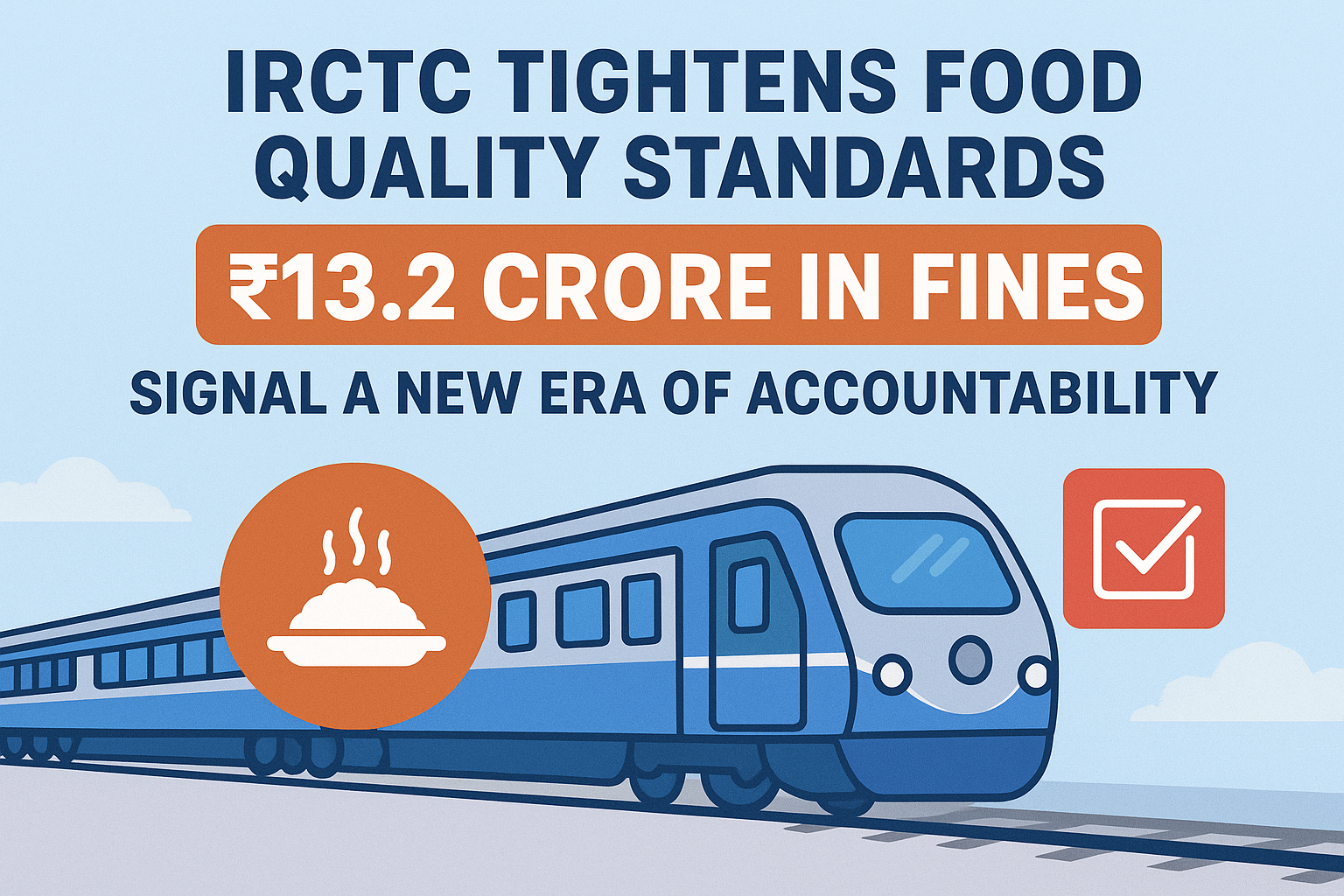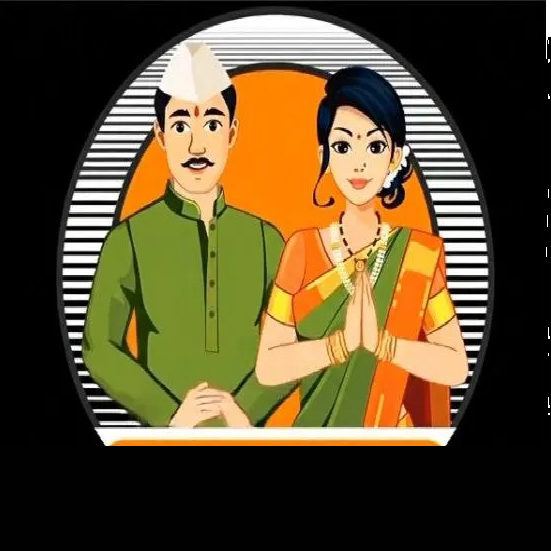
IRCTC Tightens Food Quality Standards: ₹13.2 Crore in Fines Signal a New Era of Accountability
In the vast ecosystem of Indian Railways, where 16.5 lakh meals are served daily, food is more than just sustenance — it is a symbol of trust. Every plate of dal, every chapati, every cup of chai represents the unspoken contract between a public service and its citizens. That’s why Railway Minister Ashwini Vaishnaw’s recent disclosure in the Lok Sabha — that the Indian Railway Catering and Tourism Corporation (IRCTC) imposed ₹13.2 crore in fines last year over food quality complaints — is more than a statistic. It is a marker of change, a signal that complacency in passenger services will no longer be tolerated.
A System Too Big to Ignore
Indian Railways is the lifeline of the nation — a daily connector of people, goods, and aspirations. Serving 16.5 lakh meals a day is not just a logistical marvel but one of the largest food service operations in the world. Yet, in such scale lies the challenge: how do you maintain consistent quality from Guwahati to Goa, from Rajdhani Express to a slow passenger train?
Over the years, complaints about stale food, hygiene lapses, and overpriced meals have eroded public confidence. Social media amplified the issue with viral videos and passenger grievances. But instead of turning defensive, the Railways appears to have taken the criticism as a mandate to reform.
The ₹13.2 Crore Wake-Up Call
The fines imposed are not symbolic slaps on the wrist. ₹13.2 crore represents real money, taken from contractors and service providers who failed to meet standards. This is a shift from the old “chalta hai” culture to a performance-driven, outcome-based accountability system.
Minister Vaishnaw made it clear that monitoring is no longer reactive. The deployment of 1,695 hospitality graduates — with 819 stationed in base kitchens and 876 onboard trains — is an example of skill-based governance. These aren’t just inspectors; they are trained professionals, equipped to enforce standards and ensure service excellence.
From Train-by-Train to Cluster-Based Management
One of the boldest changes is the cluster-based catering model. Instead of awarding separate contracts for each train — a fragmented system that allowed inefficiency to hide — catering is now managed in clusters of trains. This ensures end-to-end accountability for service providers. If food quality dips on one train, it reflects on the performance for the entire cluster.
This model has attracted 24 serious bidders, with 20 winning contracts under transparent, published terms. The Letters of Award (LOA) are available on the IRCTC website, reinforcing the government’s commitment to transparency.
The Human Element: Hospitality as a Service Mindset
The Railways has mandated that degree and diploma holders in hotel management oversee both base kitchens and onboard services. This is more than a technical change — it is a cultural shift. Hospitality professionals bring a mindset that sees passengers not as “users” but as “guests.”
As the minister outlined, the new circulars include specific qualification and training requirements for catering staff. From kitchen hygiene to onboard presentation, every detail is now under scrutiny. The message is clear: Indian Railways wants to transform its food service from a survival necessity to a part of the travel experience.
RailMadad: Feedback in Real Time
Another significant step is integrating complaints and feedback into the RailMadad portal — a centralized grievance redressal system. Every passenger complaint, whether from social media, elected representatives, or direct feedback, is recorded, monitored, and acted upon. This real-time loop between service quality and corrective action is a critical reform that keeps contractors on their toes.
Why This Matters Beyond Food
Catering reform may seem like a niche issue, but it is a test case for public service delivery in India. If a system as vast and complex as railway catering can enforce quality standards, embrace transparency, and adopt skill-based monitoring, the same playbook can be applied to other sectors — from healthcare to public transport.
This is governance in its most relatable form. A passenger may never read a tender document or a policy circular, but they will taste the difference in a hot, hygienic meal served with courtesy.
The Road Ahead
Reforms are only as good as their execution. The ₹13.2 crore in fines shows the Railways is willing to penalize poor performance, but the real measure of success will be a decline in complaints, not just an increase in penalties.
The combination of technology (RailMadad), professional oversight (hospitality graduates), structural reform (cluster model), and transparency (public LOAs) offers a strong foundation. But this momentum needs to be sustained — because the Indian passenger deserves no less than world-class service.
In the end, the IRCTC story is not just about food on trains; it is about restoring public faith in public systems. It is about proving that in India, scale does not have to mean compromise, and that with the right mix of accountability, professionalism, and political will, even the toughest challenges can be tackled.
As the Railways steers into this new era, the journey is far from over — but for now, it has taken a step in the right direction. And sometimes, in governance as in travel, a good start is half the journey.



